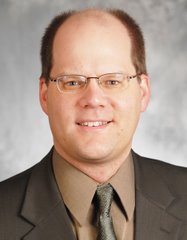Fact Check on CMB Mailer on Birds
Campaign season is in full swing and the attack mailers are hitting mailboxes. Here's a fact check on the mailer that arrived on September 28th ("That blank check for migrating bird habitat..." with two ducks talking on the beach.)
The mailer is referring to a change to the non-game wildlife fund that is supported by a voluntary check-off (often called the "chickadee checkoff") on your income tax form. Revenue from the check-off goes to a dedicated fund at the DNR, which then protects habitat for non-game wildlife. Note: Ducks are not non-game wildlife! No blank check.
In 2010, The Pawlenty Administration and the DNR asked the legislature to specifically allow the use of this funding for protecting habitat in other countries. The reason was to protect habitat for migratory birds that live in MN during warmer months and then go south.
Here is the language that was passed with only 25 dissenting votes as part of the omnibus environment and natural resources policy bill. (The underlined language is what passed this year.) Governor Pawlenty also signed the bill.
2010 Minnesota Statutes, Chapter 361 (cited in mailing as House Journal, p. 12973, SF3275, May 12, 2010
Sec. 67. Minnesota Statutes 2008, section 290.431, is amended to read:
290.431 NONGAME WILDLIFE CHECKOFF.
Every individual who files an income tax return or property tax refund claim form may designate on their original return that $1 or more shall be added to the tax or deducted from the refund that would otherwise be payable by or to that individual and paid into an account to be established for the management of nongame wildlife. The commissioner of revenue shall, on the income tax return and the property tax refund claim form, notify filers of their right to designate that a portion of their tax or refund shall be paid into the nongame wildlife management account. The sum of the amounts so designated to be paid shall be credited to the nongame wildlife management account for use by the nongame program of the section of wildlifeNone of the money provided in this section may be expended unless the commission has approved the work program.
The state pledges and agrees with all contributors to the nongame wildlife management account to use the funds contributed solely for the management of nongame wildlife projects and further agrees that it will not impose additional conditions or restrictions that will limit or otherwise restrict the ability of the commissioner of natural resources to use the available funds for the most efficient and effective management of nongame wildlife. The commissioner may use funds appropriated for nongame wildlife programs for the purpose of developing, preserving, restoring, and maintaining wintering habitat for neotropical migrant birds in Latin America and the Caribbean under agreement or contract with any nonprofit organization dedicated to the construction, maintenance, and repair of such projects that are acceptable to the governmental agency having jurisdiction over the land and water affected by the projects. Under this authority, the commissioner may execute agreements and contracts if the commissioner determines that the use of the funds will benefit neotropical migrant birds that breed in or migrate through the state. in the Department of Natural Resources. All interest earned on money accrued, gifts to the program, contributions to the program, and reimbursements of expenditures in the nongame wildlife management account shall be credited to the account by the commissioner of management and budget, except that gifts or contributions received directly by the commissioner of natural resources and directed by the contributor for use in specific nongame field projects or geographic areas shall be handled according to section 84.085, subdivision 1. The commissioner of natural resources shall submit a work program for each fiscal year and semiannual progress reports to the Legislative-Citizen Commission on Minnesota Resources in the form determined by the commission.
In short, the mailer gives people the misleading idea that as a legislator I was responsible for using your tax dollars for overseas bird habitat. The facts are that funds for overseas habitat come from voluntary contributions by taxpayers on their state income tax form and there is no "blank check" for this program.
